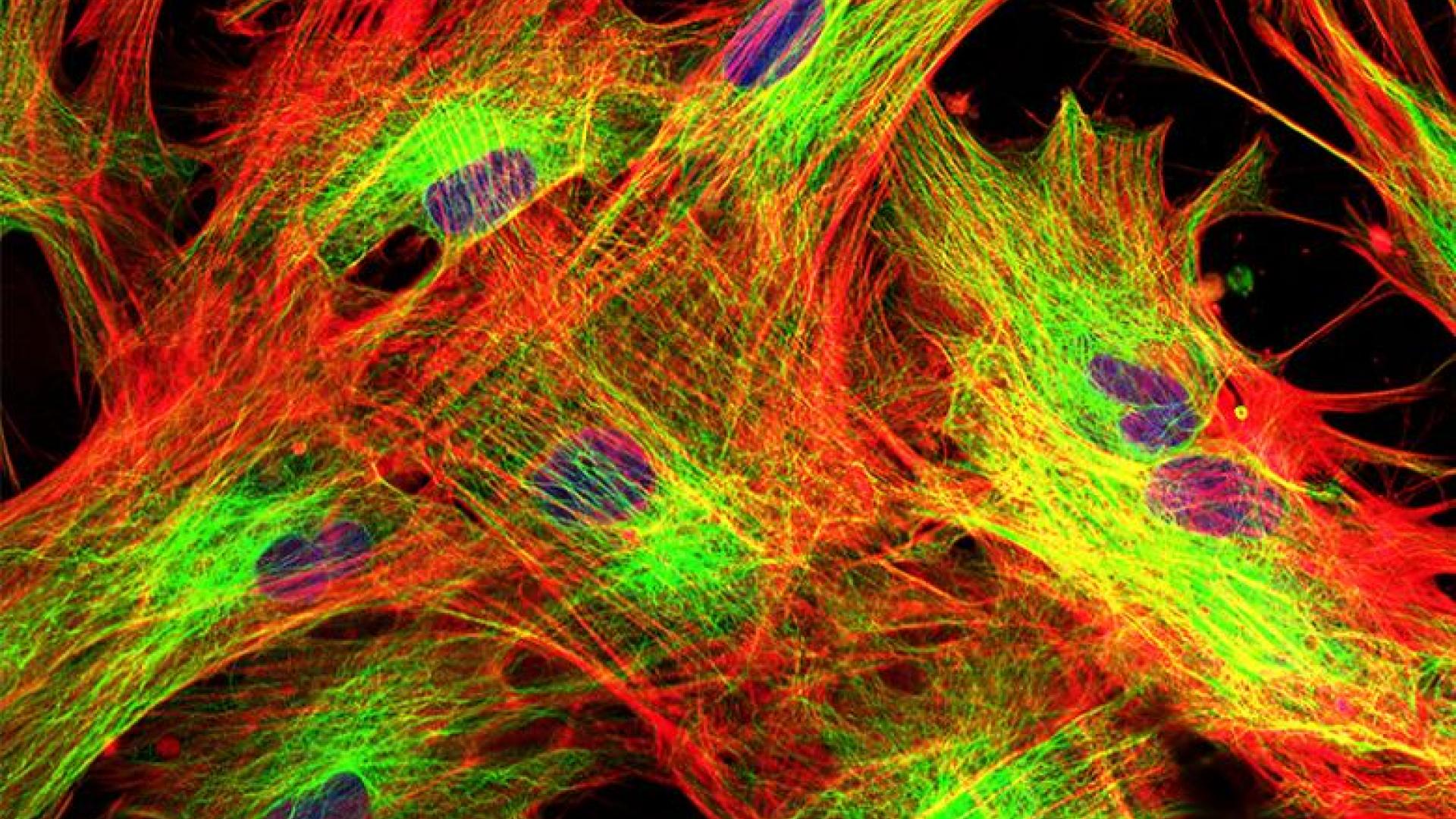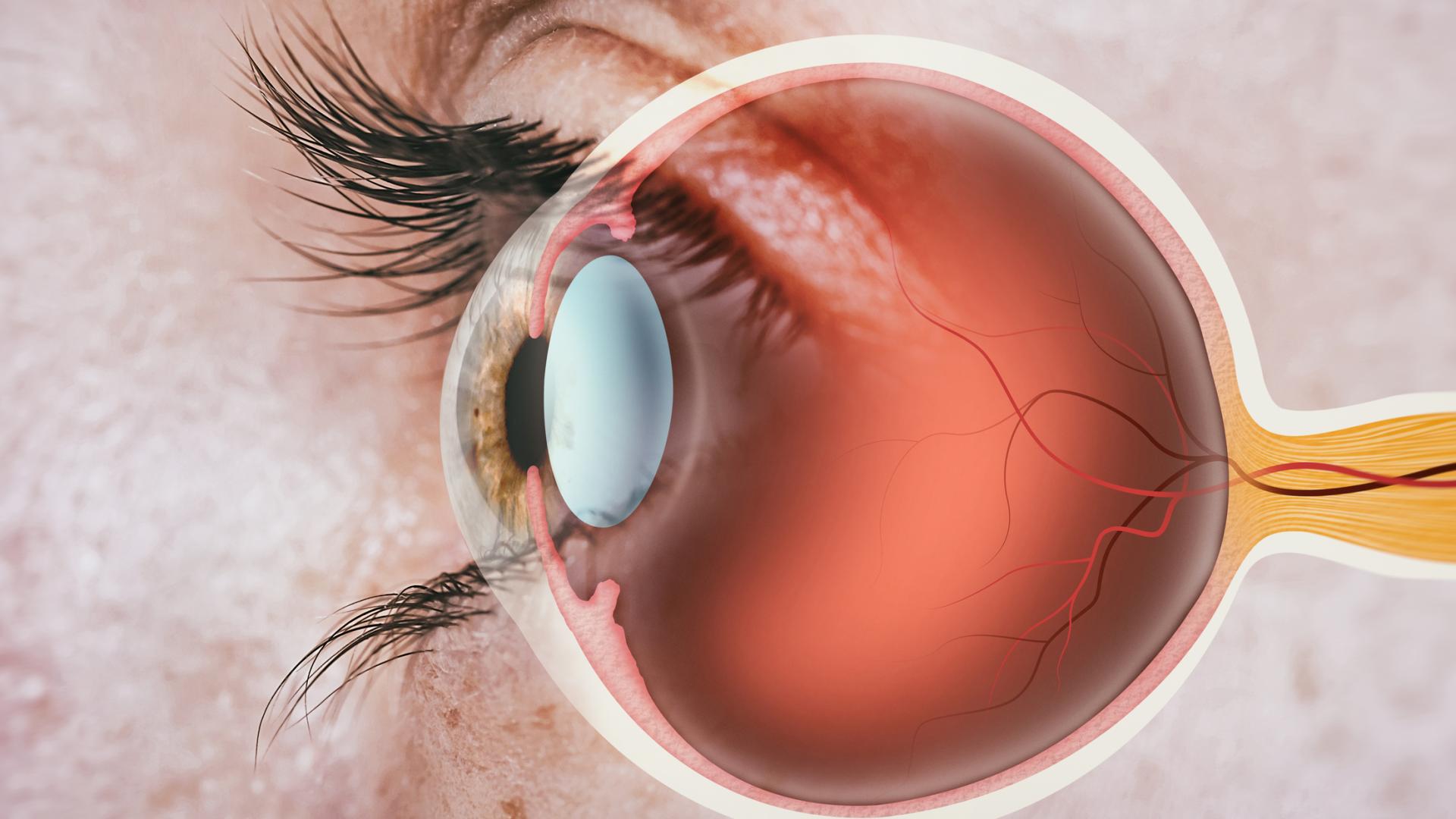
Since glaucoma does not have symptoms until late stages of the disease—as when central vision is affected—it is often called the “silent thief of sight.” However, there are certain forms of glaucoma that can cause headaches.
Generally speaking, chronic forms of glaucoma such as primary open-angle glaucoma do not cause headaches. However, acute forms of glaucoma — when the drainage system suddenly closes and eye pressure increases rapidly — can cause headaches. Additionally, certain secondary forms of glaucoma that cause very high eye pressures can also result in a headache.
Below, please find more information about when glaucoma can cause headaches.
Neovascular Glaucoma
One form of glaucoma that can cause very high eye pressures and headache is neovascular glaucoma. This is a secondary form of glaucoma in which abnormal blood vessels grow over the drainage system. The growth of these abnormal iris and drainage-angle vessels can happen when a person has a more severe form of diabetic eye disease called proliferative diabetic retinopathy. They can also occur after vascular occlusions (obstructions) in the eye, such as a central retinal vein occlusion.
There are other less common causes of neovascular glaucoma, but they have in common growth of these abnormal vessels. At some point, the drainage angle is completely covered and the eye pressure climbs very high. The patient will have symptoms, including headache, blurred vision, pain, and nausea. The best way to prevent these forms of glaucoma is to have routine dilated eye exams, especially if you are diabetic.
Angle-Closure Glaucoma
Another form of glaucoma that causes very high eye pressure and headache is angle closure glaucoma. During an angle-closure glaucoma attack, the eye pressure gradually increases until the drainage angle completely closes, which causes the eye pressure to more rapidly increase. The patient may have a headache, blurred vision, pain, and nausea. The treatment for this type of glaucoma attack is to lower the eye pressures with medicine and make a small hole in the iris to “break” the attack, using a procedure called laser iridotomy. This is the same laser procedure that is used to prevent an angle-closure glaucoma attack. However, in the acute setting, when the person is in pain and the cornea may be swollen due to the high eye pressures, the laser procedure is more challenging to perform.
Prior to an angle-closure glaucoma attack, a person who has narrow angles may have intermittent (occasional) closure of the angle, such as in a dark environment like a movie theater. In these situations, it is possible a person could experience a headache and blurred vision, but when the angle closure resolves (without developing into a full-blown attack), the headache and blurred vision will resolve. There are other situations in which a person at risk for an angle-closure attack (a “primary angle-closure suspect”) could have intermittent closure of the angle or even a full angle-closure attack. These situations include taking oral medications such as certain over-the -counter cold medications, or prescription medications, or even having the eyes dilated during an eye exam.
Summary
If you are having chronic headaches, you should discuss these symptoms with your primary care doctor. There may be other potential causes of these headaches unrelated to the eyes. One helpful tip is to make a note of when the headaches occur, what might be triggering them, and what helps them improve. While glaucoma is not a common cause of headaches, if you are experiencing this symptom and you are concerned that it may be related to your eyes, it is worth getting an eye exam.
About BrightFocus Foundation
BrightFocus Foundation is a premier global nonprofit funder of research to defeat Alzheimer’s, macular degeneration, and glaucoma. Since its inception more than 50 years ago, BrightFocus and its flagship research programs—Alzheimer’s Disease Research, Macular Degeneration Research, and National Glaucoma Research—has awarded more than $300 million in research grants to scientists around the world, catalyzing thousands of scientific breakthroughs, life-enhancing treatments, and diagnostic tools. We also share the latest research findings, expert information, and resources to empower the millions impacted by these devastating diseases. Learn more at brightfocus.org.
Disclaimer: The information provided here is a public service of BrightFocus Foundation and is not intended to constitute medical advice. Please consult your physician for personalized medical, dietary, and/or exercise advice. Any medications or supplements should only be taken under medical supervision. BrightFocus Foundation does not endorse any medical products or therapies.
- Eye Pressure









